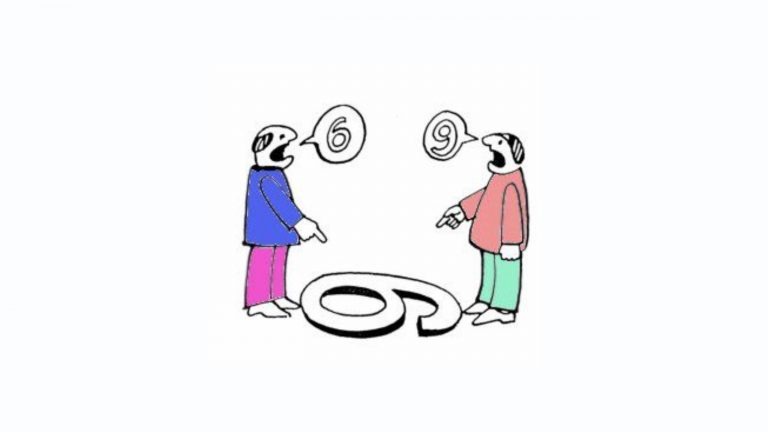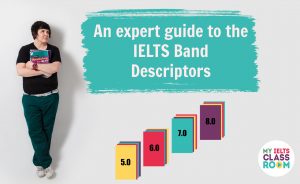
Should I request an IELTS remark?
Every candidate has the chance to apply for an IELTS remark if they feel that their scores do not reflect their true exam performance. However, NOT every candidate who doesn’t get the band scores they need should do this! There are many factors that you should take into account before deciding on applying for an enquiry into your results – and a couple might surprise you!
So, in today’s blog, we are going to look at the SEVEN QUESTIONS that any student considering a remark should ask themselves (and answer honestly!) before spending money on one. But, before we get into those, let’s start by looking at some…
IELTS Enquiry on Results (EOR) Facts
- you must apply for an enquiry into your results within SIX WEEKS of your test date
- you can choose to have ONE part of your test re-marked, or ALL FOUR parts
- your paper will be sent to an IDP or BC Head Office to be remarked (often in the UK, or Australia)
- your paper will be marked again by a senior examiner
- the IELTS remark process takes between six to eight weeks (*I have been told that this may now be only 3 – 21 days for CBT, so it’s best to check with your centre)
- there is a fee for remarking (usually around $80), but if your score changes, the fee is REFUNDED
OK, so, those are the basic facts. Perhaps the most important are that you are going to have to pay to get your exam looked at again, and it will take up to 2 months to get the results back (unless you took the computer-based test, in which case it will be a speedy 3 days!). For many test-takers, these facts alone are enough to decide that a remark is not worth it! However, for those of you still interested, let’s look at the 7 questions you should ask yourself before making a decision.
1. What part of the IELTS exam did you achieve a low score in?
Essentially, the IELTS exam can be divided into two parts – those which are objectively marked and those which are subjectively marked.
For the listening and reading papers, there is definitive list of correct answers for each question. This means that the answers are objective. The words you wrote on the answer sheet either matched the IELTS answer or they didn’t. In other words, there is no grey area here – the answers are black and white. Therefore, if you under-performed in one of these modules, there is absolutely no point asking for a remark. Your results won’t change (sorry, but that’s the simple truth).

On the other hand, writing and speaking are evaluated using the IELTS band descriptors, and despite the IELTS organisation’s best efforts to ensure standardisation, there can be some deviation in the results. In other words, the results can vary depending on the examiner and the way they personally interpret the marking criteria (after all, they are people and people interpret things differently!) So, the scores for these parts of the test should be considered as subjective and, therefore, might be worth challenging in a re-mark.
Did you know that it is now possible to ask for a breakdown of your writing and speaking scores if you sat your test at a British Council test centre? Find out how to apply and use our copy and paste email template by clicking here

2. How much does your IELTS score need to be increased by?
Here’s the thing – a standard deviation of 0.5 is quite common and acceptable in the IELTS world, but a difference of more than 0.5 between examiners would be very unusual. That means that if your current writing score is 6.5 and you need a 7.0, it might be worth applying for a IELTS remark. However, if your current score is 6.0 and you need a 7.0, in my experience it would be highly unlikely for your score to change by a full band.
👉 That’s because for a change of one full mark, your original examiner would have had to have marked you a full band lower in THREE or FOUR areas of the band descriptors. 👈
If you don’t know what the band descriptors are (and really if you have already taken the exam, you should!) then they are Task Response, Coherence and Cohesion, Lexical Resource and Grammatical Range and Accuracy for Writing, and Fluency, Lexical Resource, Grammatical Range and Accuracy, and Pronunciation for Speaking).
3. What scores do you have in the other areas of the IELTS test?
Now, what I am going to say might seem contradictory, but if there is a BIG difference between one of your scores and the other three, then asking for a remark might NOT be a good idea. For example, if your scores look like this:
Listening: 8.5, Reading: 8.0, Writing: 6.5, Speaking: 8.0
Then it is likely that your writing paper has ALREADY been marked twice at the test-centre where you sat the exam. That’s because IELTS administrators are trained to look for jagged scores – those are sets of scores where ONE is much higher or lower than the rest. Why? Well, it’s because the unusual score might be the result of an administrative error (and that would be a disaster for the test centre!) or even a breach of exam security (I mean, if a student gets 9.0 in Reading and 5.5 in all the other modules, it seems suspicious, right?!) Either way, these test papers are marked again by NEW examiners at your local test centre just to be safe.
👉 Now, I have to be honest, I don’t know exactly what the difference between the high and low scores needs to be to “trigger” an automatic re-mark, but I imagine it would be around 1.5. 👈
Therefore, if you only have one very low score, ironically, you may have the least to gain from an IELTS re-mark. That said, obviously, if you performed to a high level in 3 parts of the exam and only need a change of 0.5, it still might be worth going for it. Your general level of English must be high, and so you should have good Grammar and Lexis scores regardless of Task Response and Coherence & Cohesion (Writing) or Fluency and Pronunciation (Speaking).
On the other hand, if your scores are much closer, for instance,
Listening: 7.5, Reading: 7.0, Writing: 6.5, Speaking: 7.0
then it might seem much less likely for a score change, but as these students’ papers will definitely have been marked only once, the possibility of a change is actually higher. That said, if all your other scores are similar, then it’s highly probable that your performance was simply slightly worse in one area than the others. It’s very common for students to have one “weak” area. Usually, more practice and preparation is the answer to the problem rather than a remark.
Also, I want to add here that many students’ performances fluctuate slightly depending on the question they are given.
If you scored 7.0 in the last exam, but this time only received 6.5 – don’t be surprised! This is actually quite normal and not necessarily a sign that there is a problem with marking. This is especially true of the writing exam, where students’ scripts can vary by as much as one band score depending on the type of essay or topic given. Reading too can be influenced by the texts – having some background knowledge of the topic can boost your performance considerably (or weaken it if you have NO idea about the theme!).
We also have an episode of the My IELTS Classroom podcast where Nick and I discuss all of these points in great detail. So, if you would prefer to listen to us explaining when an IELTS remark is a good idea rather than reading, just click on the play button below:
4. IELTS Speaking Remark – was your score similar to previous exams?
However, I feel that a wide variation in scores is a lot less likely in speaking than writing, reading, or listening. Yes, the topic of your Part 2 and Part 3 can make a slight difference to your score, but in general, speaking is a stable skill. People who are able to communicate fluently can do so on any IELTS topics (as they are so general). Therefore, if you received a higher score in a previous exam, or have done practice with a good teacher who gave you an accurate score that was higher, then definitely go for a re-mark.

I once had a student who dropped from an 8.0 to a 6.5 in Speaking in the space of 3 weeks – this is obviously impossible, and the remark came back with a +1.0 change (I told you it’s unlikely for your score to change by a full band score, but it’s not impossible!) Luckily, the student and I had worked together extensively, so we knew that the 6.5 was a ridiculous and felt confident applying for the re-mark!
However, even though I DO recommend applying for a re-mark if you have a sudden drop in your speaking score, I DON’T THINK the following reasons are good enough to ask for one:
- I spoke for two minutes in Part 2, so I must get a 7.0 (WRONG! This might be good fluency, but what language did you use? Did you make lots of grammar mistakes? Was your lexis correct? WE DON’T KNOW!)
- I got a Part 2 topic that I had memorised so I know it was perfect (WRONG! The examiner probably knew it was memorised too and so discounted that section from your score)
- I only made a couple of grammar mistakes (WRONG! If you only made a “couple” of grammar mistakes, you would get 8.0 for GRA – that’s unlikely if you got a 6.0 or 6.5 overall!)
- I saw the examiner write 7 on a piece of paper (WRONG! You saw the examiner write the time! Examiners NEVER write scores)
Want to know how the examiner will apply the band descriptors when marking your IELTS essay?
Then download a copy of our FREE e-book, which explains how each of the four marking criteria is applied and includes the most common errors made by test-takers. Just click here for your copy.

5. IELTS writing remark – have you considered Task 1 and Task Response?
Have you taken into consideration Task 1? When students get a suspiciously low score for writing, the first thing they look at is their essay. However, in my experience, Task 1 is often the main reason for a surprisingly low score. That’s because it’s common for students to forget to include all of the data or bullets in their report/letter, and these “small errors” can make a BIG difference to your score!
👉 A 7.0 essay can easily turn into a 6.5 score if you get 6.0 or less in Task 1 👈
In the same way, can you be sure that you addressed the question fully in Task 2? Many essays with great grammar and vocabulary have lost marks for poor Task Response because they were off-topic or had ideas that weren’t fully extended.
If you have a good teacher who is a skilled IELTS marker, then you can try to “recreate” what you wrote in the exam and ask them to have look at it for you. It might be that you made a big mistake without even realising it – I have done this many times with my students, and what I usually find is that they misinterpreted the question. Although it is always disappointing to discover you made a mistake in the exam, it’s much cheaper to find out now rather than after an expensive failed IELTS re-mark!
6. Have you been honest about your exam-day performance?
However, despite all of the advice above, NOBODY can tell you if your score will change because NOBODY else has seen your test paper or heard your speaking recording other than the examiner. The only way to know if an IELTS re-mark is the right thing to do is to be honest about your performance.
If you genuinely think that you deserved a higher score, then don’t be afraid to apply for one – I have had many students whose scores have been changed. My only advice would be not to rely on the fact that your score will increase – it’s always best to keep preparing for another exam while you wait. I know that might feel like a depressing prospect now, but you might be grateful in the future that you didn’t stop. IELTS skills fade fast!
7. Have you considered the IELTS remark success rate?
At the end of the day, an IELTS re-mark is an expensive and time-consuming gamble. I would say that for a 0.5 increase in speaking or writing, the chances of your score changing are about 30-50%. However, this is based on nothing more scientific than my own experience!
If you can afford it, go for it. If not, pick yourself up, dust yourself down and prepare for round two (or three, or four, or ten!). If you are even thinking about a re-mark, it must mean that you are close to your desired score, so a bit more study and you’ll soon get there. Don’t let this one failure set you back! Th main thing is to make an informed choice – a re-mark should not be a gamble!

Should I request an IELTS remark?
OK, so those are my 7 questions; let’s summarise what we have learned:
- An IELTS re-mark may be worthwhile for writing or speaking if you have the time and money to apply for one, you need only a 0.5 change, and you can be sure that you addressed the tasks fully for writing, or have previously performed to a high level in speaking.
- However, if your low score is in reading or listening, OR you need a change of more than 0.5, it would be better to save your money and prepare again
Phew! That was a lot of information, but I hoped it helped! If you do decide to go for a re-mark, GOOD LUCK and please let me know how you get on in the comments below! 👇👇👇
If you would like a trained IELTS expert to look at your writing and analyse why you didn’t receive the band score you need, then please contact me. I help hundreds of students each year get the marks they require – it’s better to pay for lessons and pass than to keep throwing hard-earned money away on endless failed exams (and re-marks!!) Good luck 🚀
